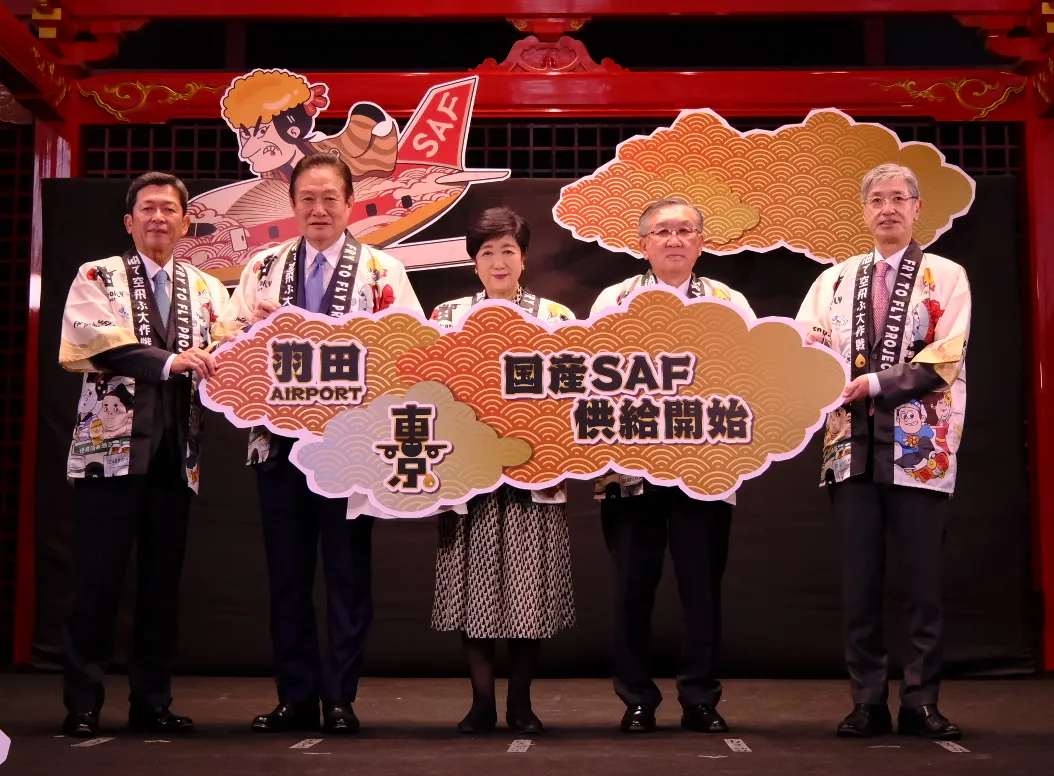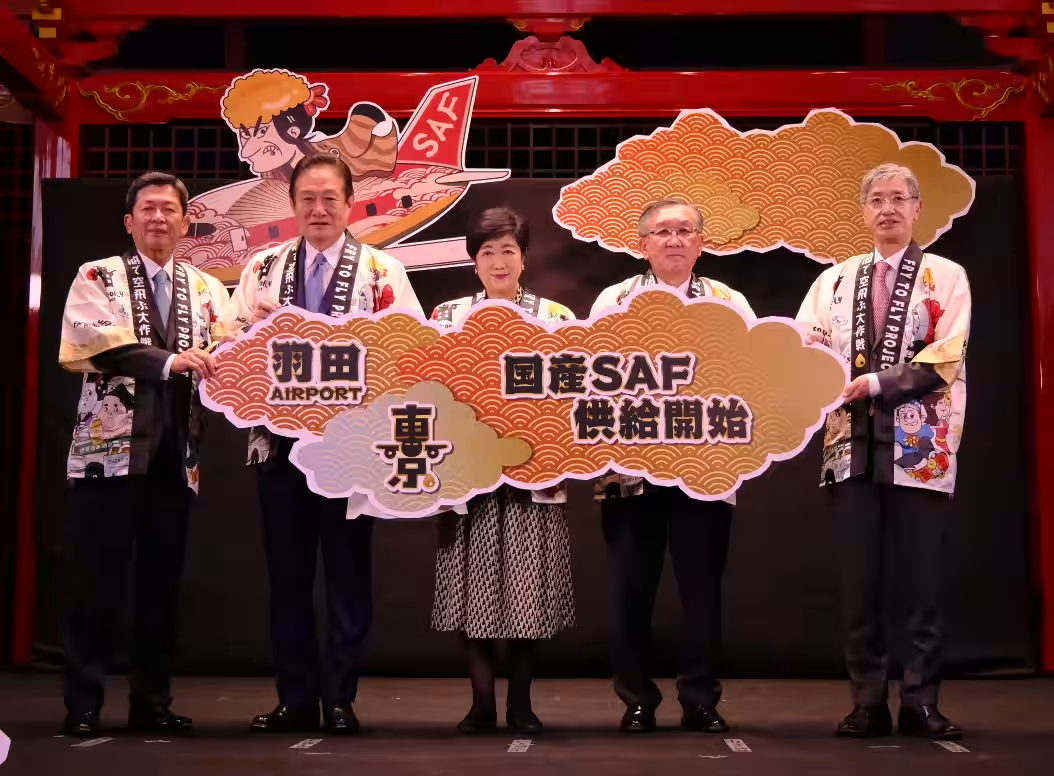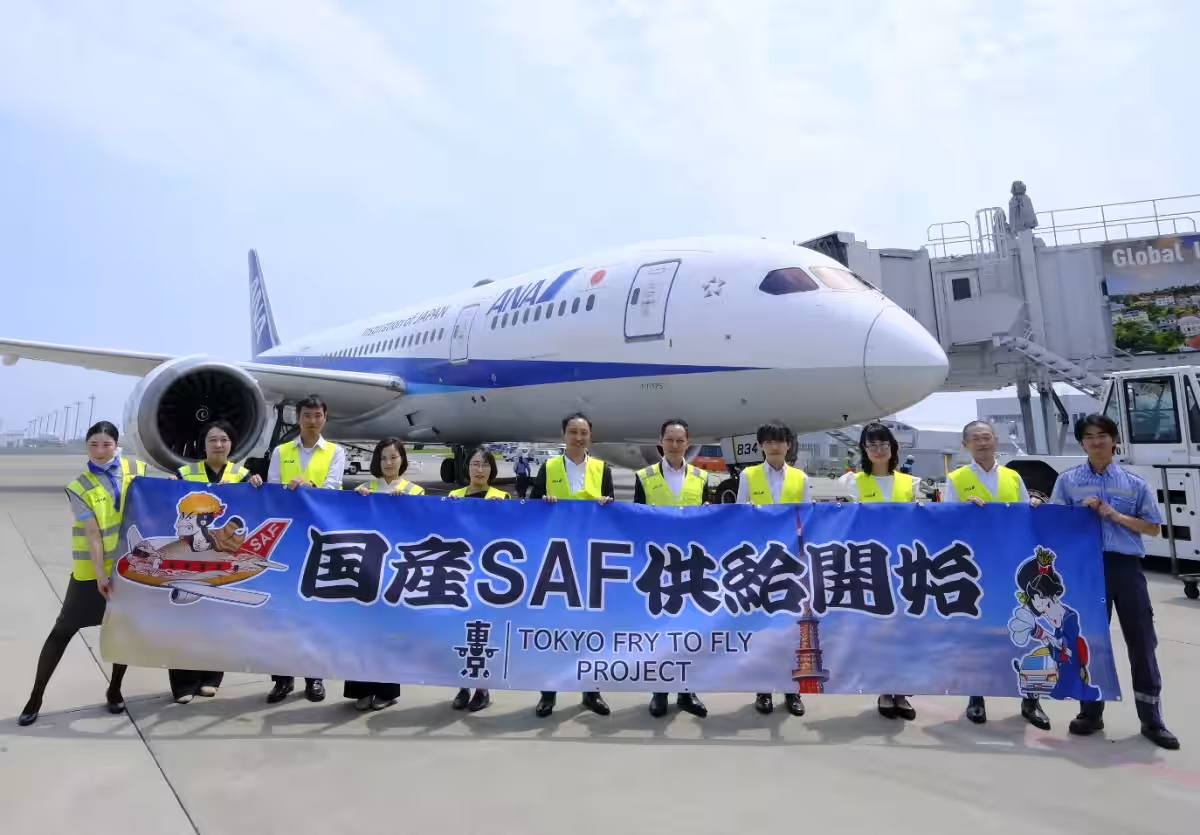

Japan Launches Domestic SAF Supply for Airlines at Haneda Airport
Japan's Innovative Step Towards Sustainable Aviation
In a noteworthy development in the field of sustainable aviation, Nippon Oil Holdings Corporation (commonly referred to as Nippon Oil or JGC), in collaboration with the Tokyo Metropolitan Government, All Nippon Airways (ANA), and Japan Airlines (JAL), has officially commenced the supply of domestically produced Sustainable Aviation Fuel (SAF) at Tokyo's Haneda Airport. This initiative is part of the ambitious "Fry to Fly Project," which aims to utilize waste cooking oil as a raw material for SAF, thereby revolutionizing the aviation landscape in Japan.
The Fry to Fly Project
Launched with a vision to create a sustainable aviation ecosystem, the Fry to Fly Project targets the collection of waste cooking oil from households and restaurants across Tokyo. The aim is to transform this byproduct into SAF which can be utilized by commercial airlines. By March 2024, this project is set to kick off a large-scale collection drive called "Tokyo Fry to Fly Project," encouraging citizens to rethink their waste disposal habits and actively participate in the sustainability movement.
As part of this initiative, a campaign to collect household waste oil is slated to launch during the Tokyo 2025 World Championships, with designated collection points to be set up throughout the city. Prominent athletes, such as Ambassador Haruka Kitaguchi, will help promote this effort, thereby increasing public awareness and engagement.
Nippon Oil and the Tokyo government have found a unique way to involve the community in combatting carbon emissions while providing a sustainable fuel solution for air travel. By actively educating citizens and facilitating collection, they aim to significantly increase the amount of waste cooking oil diverted from disposal.
Groundbreaking Achievements and Sustainable Goals
The SAF supplied at Haneda has been produced at SAFFAIRE SKY ENERGY's manufacturing facility located in Sakai City, Osaka. This production facility holds the distinction of being the first in Japan to receive ISCC CORSIA certification, an international standard indicating the sustainability of non-fossil products.
Remarkably, Japan will also see the completion of its first large-scale SAF production facility by December 2024, with stable local SAF production and supply expected to commence in April 2025. This timeline reflects Japan's commitment to green aviation and ambitious targets set by the International Civil Aviation Organization (ICAO) aiming for net-zero carbon emissions from international flights by 2050.
The collaboration between Nippon Oil, governmental bodies, and airlines marks a significant commitment to integrating sustainability into the aviation sector. They are working closely to boost public understanding of SAF and promote its usage as a viable alternative to traditional aviation fuels.
A Sustainable Future in Aviation
Japan's aviation industry is on a crucial pathway toward decarbonization. The Fry to Fly Project exemplifies how collaboration between corporate, public, and community entities can lead to significant positive environmental impacts. By converting waste cooking oil into fuel, this initiative not only reduces carbon emissions but also promotes resource circulation within society.
As awareness spreads and more individuals participate in waste oil collection, the ambition is to transform Japan's aviation landscape into a model of sustainability. The long-term goal is to secure a stable domestic supply of SAF while fundamentally changing perceptions about waste and its potential value in contributing to a greener future.
In conclusion, the Fry to Fly Project is not merely about producing fuel; it's about harnessing the power of community and innovation to effect real change in the aviation sector, all while prioritizing sustainability and environmental stewardship. Japan is taking an insightful leap forward in making aviation more sustainable, and this project can become a template for other nations to follow.
For more information about the Fry to Fly initiative and how individuals can get involved, you can visit the official website here.



Topics Other)










【About Using Articles】
You can freely use the title and article content by linking to the page where the article is posted.
※ Images cannot be used.
【About Links】
Links are free to use.